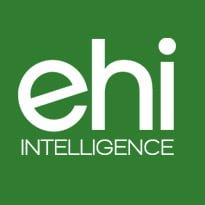EHI Intelligence has published detailed research on the strategies that NHS trusts are following to develop electronic patient records.
The new report, ‘Routes to EPR’, details how hospital trusts across England are pursuing a range of different strategies to develop electronic patient records and become paper-lite.
Analysts from the research arm of EHI conducted in-depth interviews with IT directors and other senior IT managers at 10% of the acute trusts in England.
The result is a unique insight into the strategies – or ‘Routes to EPR’ – that are being pursued by trusts, alongside detailed profiles of the progress made to date by the 16 trusts involved in the research.
These include trusts taking very different approaches to EPR, from Cambridge University Hospitals NHS Foundation Trust, which has signed a ‘single supplier’ deal with Epic, to Moorfields Eye Hospital NHS Foundation Trust, which is developing its own, open source system, OpenEyes.
The research is particularly timely given the launch of the new £260m Digital Innovation Fund, made available by NHS England to help trusts accelerate their development of electronic records and technologies that underpin patient safety, such as e-prescribing.
The £260m fund is intended to support health secretary Jeremy Hunt’s commitment for the NHS to become paperless by 2018.
As a first step towards that aim, trusts must have plans for implementing electronic records in place by April 2014. NHS England will publish guidance on these plans at the start of next month.
The ‘Routes to EPR’ report published today shows that trusts have three routes open to them – to buy all but very specialist systems from a ‘single supplier’, to buy a suite of ‘core’ systems from one supplier, or to pursue a pure ‘best of breed’ strategy, by connecting systems through a portal.
It shows that whatever direction they are taking, trusts are looking to create as integrated a suite of systems as possible, and to reduce the number of systems to which this is interfaced.
Adding systems to support clinicians in making prescribing and clinical decisions is a priority, as is sharing information with GPs and, eventually, patients.
The interviews also explored the additional steps that trusts would need to take to become paperless or paper-lite, and the financial and other costs and benefits of deploying EPR systems.
Only one of the trusts involved had set a date for going paperless – 2017 – and only one other interviewee said that their trust would remove all paper in time. The others were aiming to be “as paperless as possible” or paper-lite.
Trusts aiming for paper-lite working tended to be looking at electronic document management projects to deal with legacy notes and information on any paper that remained.
Lead author, EHI Intelligence senior analyst, SA Mathieson said: “The report provides a unique set of profiles showing the steps that trusts have taken to develop EPRs and the progress they have made.
“The strategies outlined in this report would generate many of the benefits that the government has cited, in terms of making healthcare easier to access, more efficient, safer, and better information-based.
“However, the IT directors that we spoke to are pragmatists. They have been trying to achieve aims similar to those now being promoted by Hunt and NHS England for several years and have a realistic view of the problems to be overcome; as well as the benefits to be achieved.”
The research also confirms that EPR projects are major developments for trusts. Few of the IT directors interviewed expected cash savings from EPR programmes, and most were expecting their budgets to rise.
The full ‘Routes to EPR’ report is a premium research report exclusively available to EHI Intelligence subscribers and available for online purchase.

Routes to EPR is the latest report from EHI Intelligence. It explores the strategies available to trusts looking to implement EPRs and to move towards paperless working. Routes to EPR is based on in-depth interviews with the IT directors of 16 trusts – 10% of the acute trusts in England – and includes detailed profiles for each of their organisations, setting out progress to date.
The report is available to buy now for £1995 + VAT or, alternatively, as part of a subscription to EHI Intelligence.

